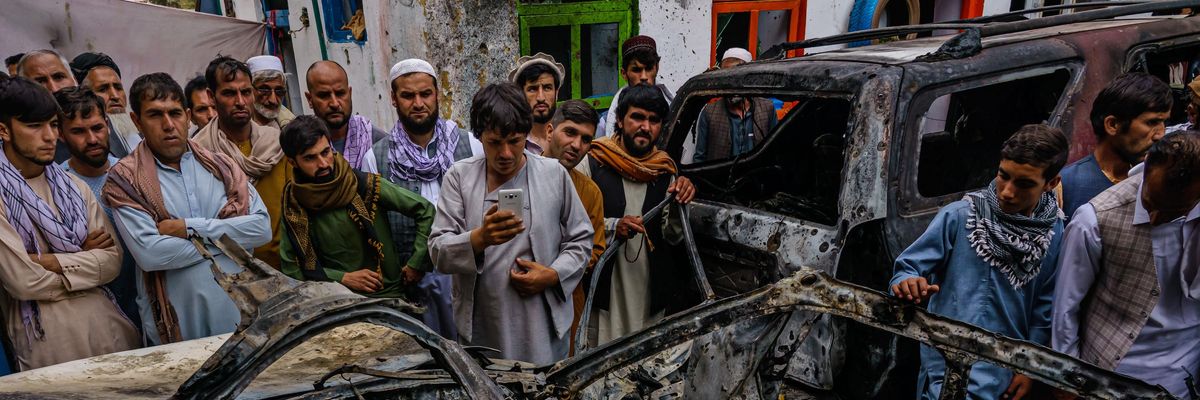After the Pentagon chief moved to improve how the U.S. mitigates and responds to civilian harm, the ACLU on Thursday urged more sweeping action in light of recent tragedies, including an August drone strike that killed 10 people in Afghanistan.
"While a serious Defense Department focus on civilian harm is long overdue and welcome, it's unclear that this directive will be enough."
"While a serious Defense Department focus on civilian harm is long overdue and welcome, it's unclear that this directive will be enough," Hina Shamsi, director of the ACLU's National Security Project, said in a statement.
According to Shamsi, "What's needed is a truly systemic overhaul of our country's civilian harm policies to address the massive structural flaws, likely violations of international law, and probable war crimes that have occurred in the last 20 years."
"Any comprehensive review also needs to address and end unlawful and unaccountable lethal strikes even outside of war zones," she added. "Actions will speak louder than words, and we need urgent action to end 20 years of war-based approaches that have caused devastating harm to Muslim, Brown, and Black civilians around the world."
Annie Shiel, a senior adviser for the Center for Civilians in Conflict, was similarly cautious while welcoming that the Department of Defense (DoD) is focusing on the issue.
"The fact that civilian harm is being recognized as a priority at the highest levels of the department is a positive and welcome step," Shiel toldThe New York Times. "But the impact will depend entirely on results."
U.S. Defense Secretary Lloyd J. Austin III on Thursday issued a memorandum ordering top civilian and military officials to craft a Civilian Harm Mitigation and Response Action Plan within 90 days.
Austin's memo calls for the plan to enable the DoD to:
- Establish a civilian protection center of excellence to better expedite and institutionalize the advancement of our knowledge, practices, and tools for preventing, mitigating, and responding to civilian harm;
- Develop more standardized civilian-harm operational reporting and data management processes to improve how we collect, share, and learn from data related to civilian harm;
- Review guidance and its associated implementation of how the department responds to civilian harm, including, but not limited to, condolence payments and the public acknowledgment of harm; and
- Incorporate guidance for addressing civilian harm across the full spectrum of armed conflict into doctrine and operational plans, so that we are prepared to mitigate and respond to civilian harm in any future fight.
"We strive diligently to minimize the harm that armed conflict visits upon civilian populations, but we can and will improve upon efforts to protect civilians," the memo states, describing such efforts as "vital to the ultimate success of our operations" as well as "a significant strategic and moral imperative."
During the final days of the two-decade war in Afghanistan last year, the Biden administration conducted a drone strike that killed 10 people, seven of them children. While initially described by U.S. Joint Chiefs of Staff Chair Gen. Mark Milley as a "righteous strike," the Pentagon later admitted it was "horrible mistake," prompting swift backlash.
"That was not a 'mistake,'" journalist Anand Giridharadas said in September. "War crimes are not oopsies."
The following month, Pentagon spokesperson John Kirby announced that the United States would issue "condolence payments" to relatives of 10 Afghans killed. In December, Kirby signaled that none of the U.S. military personnel involved in the attack would be punished.

